In today’s world of nutrition, dieting, and weight loss, we are constantly inundated with diet recommendations that fall all over the spectrum. Do a simple Google search of “Diets for Weight Loss” and you will find recommendations for anything from elimination diets to diets that promise 20 pounds of weight loss in seven days to diets that tout their nutrition supplements as the key to success. The truth is, this information overload does little to point us in the right direction in terms of making healthy, sustainable changes that will move us towards our end goal.
The purpose of this article is to help you navigate through the noisy world of dieting. Instead of breaking down the hundreds of specific diets, we aim to highlight a few popular diet categories to help you see what they are and how they could work for or against you.
Low Carb
Examples: Atkins Diet, Ketogenic Diet
What it is: Low carbohydrate diets recommend limiting carbohydrate intake to less than 20% of total calories. As reference, the current Institute of Medicine recommendation for carbohydrates is 45-65% of total calories. Carbohydrates are our bodies’ primary energy source. When we drastically limit our total carbohydrate intake, our body must instead break down fat to use as fuel. This process is called ketosis.
Claims: Weight loss, fat loss, decreased appetite
Potential drawbacks: Headaches, fatigue, risk for nutritional deficiencies due to limiting grains, fruits, and other healthy carbohydrate sources
Our Take: Many would benefit from decreasing their total carbohydrate intake. However, you must know that there is a difference between decreasing carbohydrate intake to a moderate level compared to a low level. Consider decreasing refined carbohydrate sources like baked goods and sugar sweetened beverages and be sure to consume a sufficient amount of carbohydrate sources like whole grains, fruits, vegetables, and beans. Remember, carbs are key!
Plant-based
Examples: Mediterranean, Whole30, Vegetarian/Vegan
What it is: Plant-based diets put an emphasis on limiting highly processed foods and focusing on primarily eating foods from plant sources. These diets range from those that allow for some animal meat and product consumption to diets that are comprised of 100% plant sources.
Claims: Improved heart health, weight loss, decreased cancer risk
Potential drawbacks: Increased risk for inadequate intake of essential nutrients like vitamin D, zinc, iron, B12, and protein
Our Take: Decreasing minimally processed food and increasing plant-based sources is a great strategy! It can contribute to weight loss, disease prevention, and overall health. Additionally, some plant-based diets provide delicious vegetable-based recipes. If you adopt a plant-based diet, be sure essential nutrients such as vitamin D, zinc, iron, B12, and protein are still accounted for. You can find these nutrients through other food sources, supplements, and non-food sources (i.e. sunlight).
Intermittent Fasting
Example: Leangains protocol, 5:2 diet
What it is: Intermittent fasting (IF) diets are comprised of clearly defined periods of eating and fasting, with no specific restrictions to what is eaten. The idea is that this diet will result in decreased overall caloric intake in addition to cellular changes that promote weight loss.
Claims: Weight loss, increased metabolic rate, increased insulin sensitivity
Potential drawbacks: Fatigue, brain fog, extreme hunger, potential to overconsume during non-fasting periods which can negate weight loss efforts
Our Take: IF has shown promising potential in terms of weight loss. However, simply focusing on strict guidelines around the timing of your eating without regard to the content of the food you are eating is not a comprehensive strategy for success. It is important to consider what you are putting in your body just as much as you consider when you are eating to ensure you have a balanced diet and meet all of your nutrient needs.
Detox/Cleanse
Examples: Master cleanse diet, cabbage soup diet
What it is: Detox or cleanse diets typically recommend consuming only specific juices, soups, teas, supplements, or foods and are often extremely low in total calories. They are typically short term, ranging in length from two days to eight weeks.
Claims: Removal of toxins, improved liver function, decreased inflammation, improved vitality, weight loss
Potential drawbacks: Nutritional inadequacy, lack of regulation of cleanse products, lack of evidence supporting health claims, extremely restrictive, unrealistic to exercise during cleanse
Our Take: Our bodies are inherently capable of detoxifying themselves, and there is little evidence that cleanses “detoxify” your body. Additionally, weight loss of more than 1-2 pounds per week is not realistic or sustainable, and severely restricting caloric intake can be unsafe. We would not recommend cleanse or detox diets as an effective or safe weight loss strategy.
Food for Thought
Changing your eating habits is simple, but not easy. When considering making changes to your diet, be sure that they are manageable enough to succeed daily. If you are not 99% sure that you can be successful with your changes each and every day, then you might be setting yourself up for failure. Remember, when it comes to weight loss, “less is more.”
Another key is to find a plan that is sustainable. Ask yourself, “can I practice this eating plan for the next month? The next year? The next five years?” If so, then you are on the right track! Weight loss is a marathon, not a sprint, and the best eating style for you is one that you can maintain for the long-term.
One final consideration when making changes to your diet is your long-term health and happiness. Ask yourself, “Will these changes make me healthier and happier? Or will I be miserable in the process of losing weight?” A diet with rigid rules or restriction of entire food groups is likely to result in the latter.

